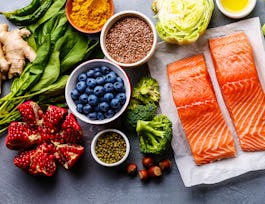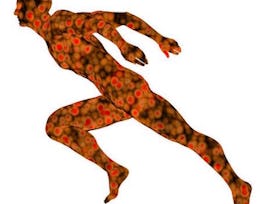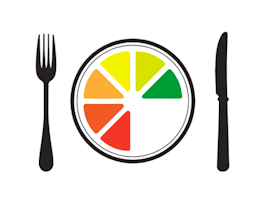Around the world, we find ourselves facing global epidemics of obesity, Type 2 Diabetes and other predominantly diet-related diseases. To address these public health crises, we urgently need to explore innovative strategies for promoting healthful eating. There is strong evidence that global increases in the consumption of heavily processed foods, coupled with cultural shifts away from the preparation of food in the home, have contributed to high rates of preventable, chronic disease. In this course, learners will be given the information and practical skills they need to begin optimizing the way they eat. This course will shift the focus away from reductionist discussions about nutrients and move, instead, towards practical discussions about real food and the environment in which we consume it. By the end of this course, learners should have the tools they need to distinguish between foods that will support their health and those that threaten it. In addition, we will present a compelling rationale for a return to simple home cooking, an integral part of our efforts to live longer, healthier lives.


Stanford Introduction to Food and Health
Taught in English
Some content may not be translated
901,424 already enrolled
(30,873 reviews)
Skills you'll gain
Details to know

Add to your LinkedIn profile
4 quizzes
See how employees at top companies are mastering in-demand skills


Earn a career certificate
Add this credential to your LinkedIn profile, resume, or CV
Share it on social media and in your performance review

There are 6 modules in this course
In this section we will examine the social and cultural shifts that have contributed to our modern epidemics of overweight and obesity. We will briefly review the nutrients found in foods, their different functions in the human body and how we can support our own health by choosing wisely from the foods within each category.
What's included
6 videos1 quiz
In this section, we will explore the ways in which highly processed foods differ from real, whole food and the implications of food processing on our health. We’ll also look at how our consumption of sugar has changed in recent decades and explore sensible solutions for people who wish to start eating better. We will also meet Kevin, a middle-aged pre-diabetic man, and find out how a step-wise approach to behavior change helped him change for the better.
What's included
5 videos1 quiz
This section focuses on sustainable solutions to the challenge of choosing healthier foods more frequently. Michael Pollan explains his mantra and how we can use it to make better food choices. We also begin to explore practical tips for preparing foods that will support our health and enjoyment.
What's included
4 videos1 quiz
In this section you will find more practical tips for grocery shopping, reading labels and assembling a balanced meal. We also learn more about the most important secret ingredient for success: moderation.
What's included
4 videos1 quiz
A few years ago, a friend of mine started a healthy eating and fitness website called Grokker. She asked me to make some instructional cooking videos and generously agreed to share some of them with you. Thanks, Lorna! (If you like this section, you can find many more great videos on cooking and fitness at Grokker.com)
What's included
10 videos10 readings
Here is a list of recommended books and videos that can help deepen your understanding of the course material. Feel free to explore the recommendations on this list to learn more about food, health, eating behaviors, and more.
What's included
3 readings
Instructor

Offered by
Recommended if you're interested in Nutrition

Emory University

Stanford University

University of Colorado Boulder

The University of Edinburgh
Why people choose Coursera for their career




Learner reviews
Showing 3 of 30873
30,873 reviews
- 5 stars
79.42%
- 4 stars
15.78%
- 3 stars
3.46%
- 2 stars
0.75%
- 1 star
0.56%
New to Nutrition? Start here.

Open new doors with Coursera Plus
Unlimited access to 7,000+ world-class courses, hands-on projects, and job-ready certificate programs - all included in your subscription
Advance your career with an online degree
Earn a degree from world-class universities - 100% online
Join over 3,400 global companies that choose Coursera for Business
Upskill your employees to excel in the digital economy
Frequently asked questions
Access to lectures and assignments depends on your type of enrollment. If you take a course in audit mode, you will be able to see most course materials for free. To access graded assignments and to earn a Certificate, you will need to purchase the Certificate experience, during or after your audit. If you don't see the audit option:
The course may not offer an audit option. You can try a Free Trial instead, or apply for Financial Aid.
The course may offer 'Full Course, No Certificate' instead. This option lets you see all course materials, submit required assessments, and get a final grade. This also means that you will not be able to purchase a Certificate experience.
When you purchase a Certificate you get access to all course materials, including graded assignments. Upon completing the course, your electronic Certificate will be added to your Accomplishments page - from there, you can print your Certificate or add it to your LinkedIn profile. If you only want to read and view the course content, you can audit the course for free.
You will be eligible for a full refund until two weeks after your payment date, or (for courses that have just launched) until two weeks after the first session of the course begins, whichever is later. You cannot receive a refund once you’ve earned a Course Certificate, even if you complete the course within the two-week refund period. See our full refund policy.

